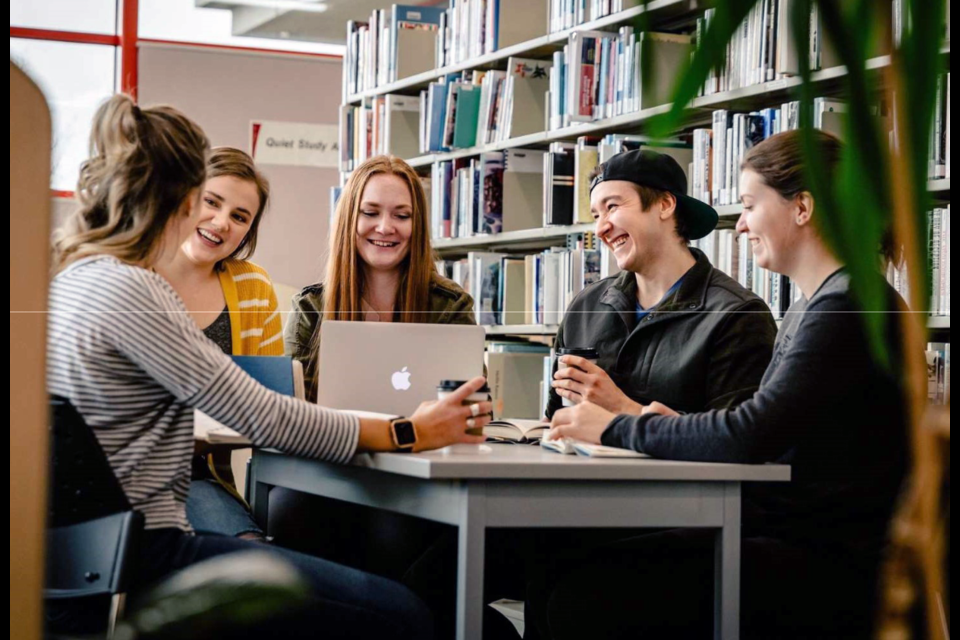The College of New Caledonia is revamping its library.
Once the changes are complete, the place students go to conduct their research and receive tutoring/testing will no longer be dominated by books on shelves.
The college has adopted a digital approach to resource material acquisitions and academic supports for students and is about to transition its users away from the traditional library experience.
CNC has ditched the name “library” and now calls that area in its Prince George campus the Learning Commons.
Roughly half of the space formerly occupied by row upon row of bookshelves has been replaced with new furniture in open areas to be used as collaborative gathering spaces, complemented by individual study areas.
“We want to save the time of the learner,” said Ignacio Albarracin, CNC’s director of CNC’s Learning Commons and Academic Success. “If we can point students towards reliable content that will work for their class, regardless of where they are or which campus they attend, the more likely they are to use the library in the future.”
To minimize the time it takes to access material and the geographic barriers of getting to the library, especially for students attending CNC’s regional campuses in other cities, the college has replaced 50,000 physical books and documents with electronic content. The Learning Commons now has 200,000 e-books, streaming videos and podcasts, which can be accessed through an online portal. College instructors are working with the Learning Commons staff to make digital resource material available to students that's most relevant to the course.
“That’s all-new content that was never available before, and what’s beneficial about digital content is we’ll be able to organize the information to make it easier for students to discover,” said Albarracin. “Students can focus their time on completing assignments rather than spending that time finding sources to start the assignment.”
With more space for collaboration and more student use of streaming audio or video, the stereotypical library silence no longer exists at CNC.
Through its Academic Success Centre, CNC has plans to introduce a technology lending program to provide laptop computers or projectors for students to help them take advantage of the digital resources.
CNC wants to eventually have a 4:1 ratio of digital material compared to the physical content of its collection. With more space and fewer books, the college will have room to have the Learning Commons and Academic Success Centre sharing the same space that currently houses the library.
The revamped approach to its library and student tutoring services came as a result of nine-month study that CNC conducted in 2021. The recommendations of that study will be used to guide the college for future improvements while maintaining its focus on digitizing and providing better learning supports for students.
The public does have access to all of CNC library resources and that will continue at the Learning Commons. But due to licencing requirements by content providers, CNC’s subscriptions to those digital services limit the number of potential users and remote digital access is restricted to CNC students, staff and faculty.
“Anybody can come in and access our services here and open an account and borrow physical materials,” said Albarracin. “One difference between a student account and a public account is the online resources, the e-books, databases, the public can only access those only on-site in the library space, not remotely.”



